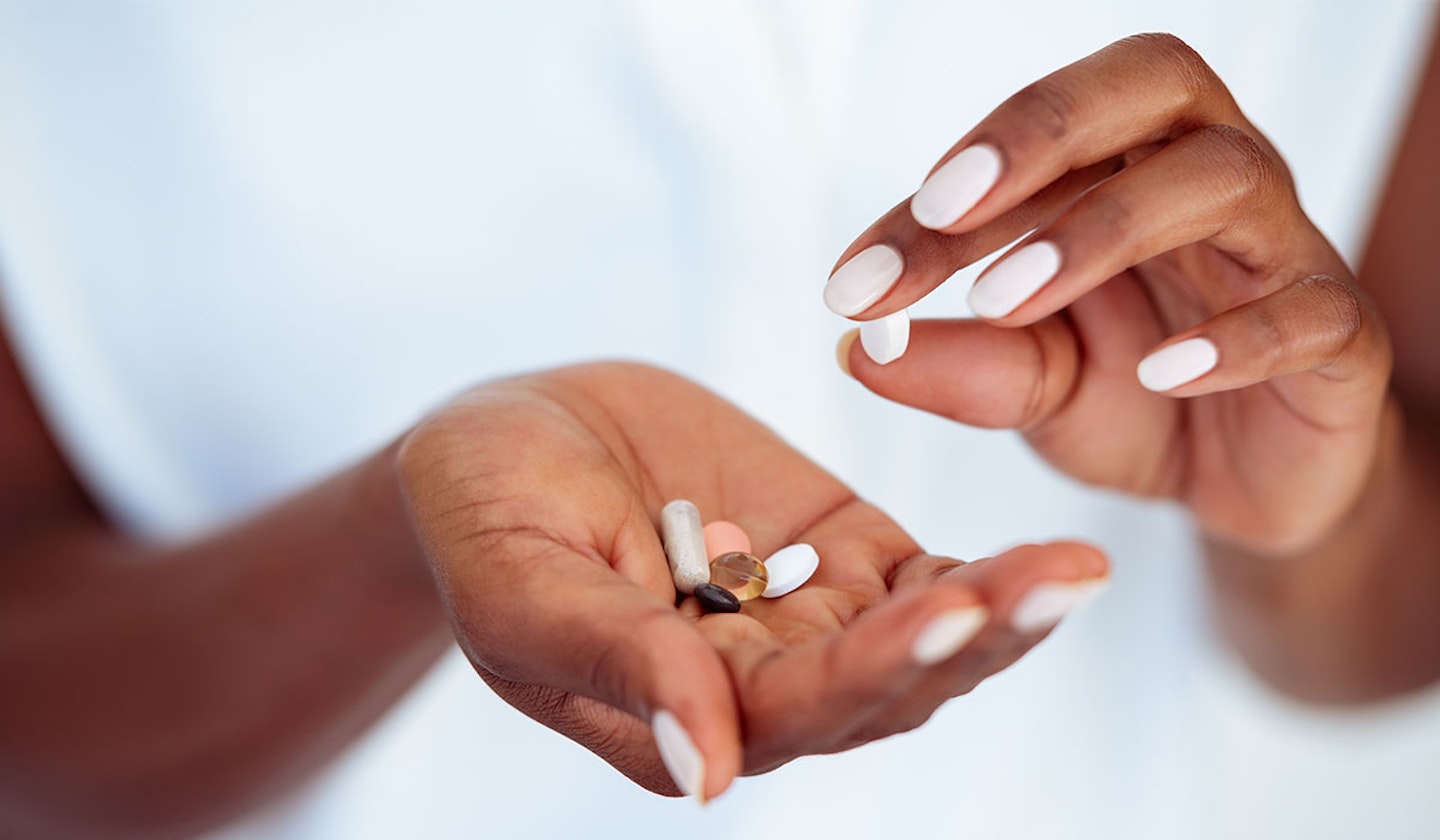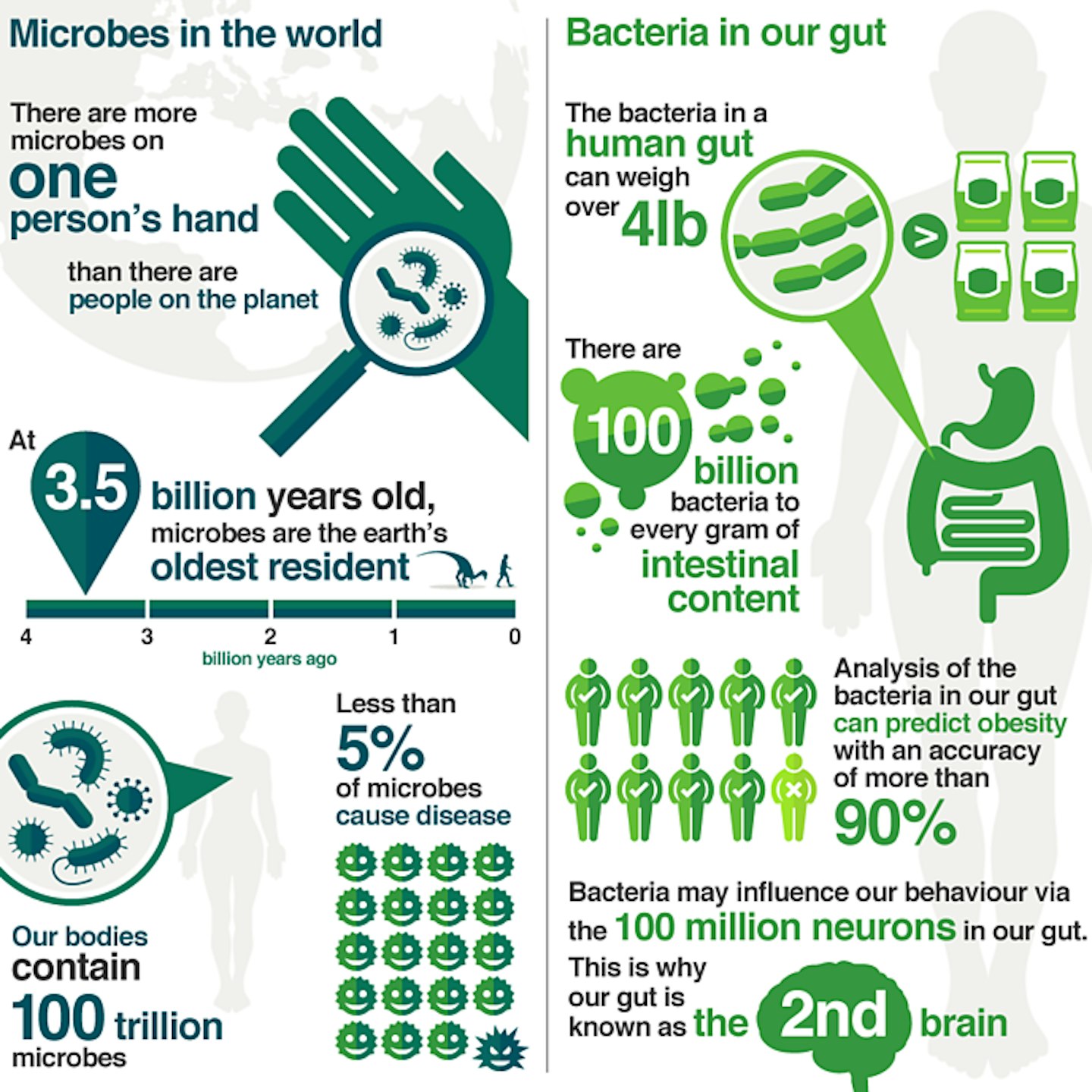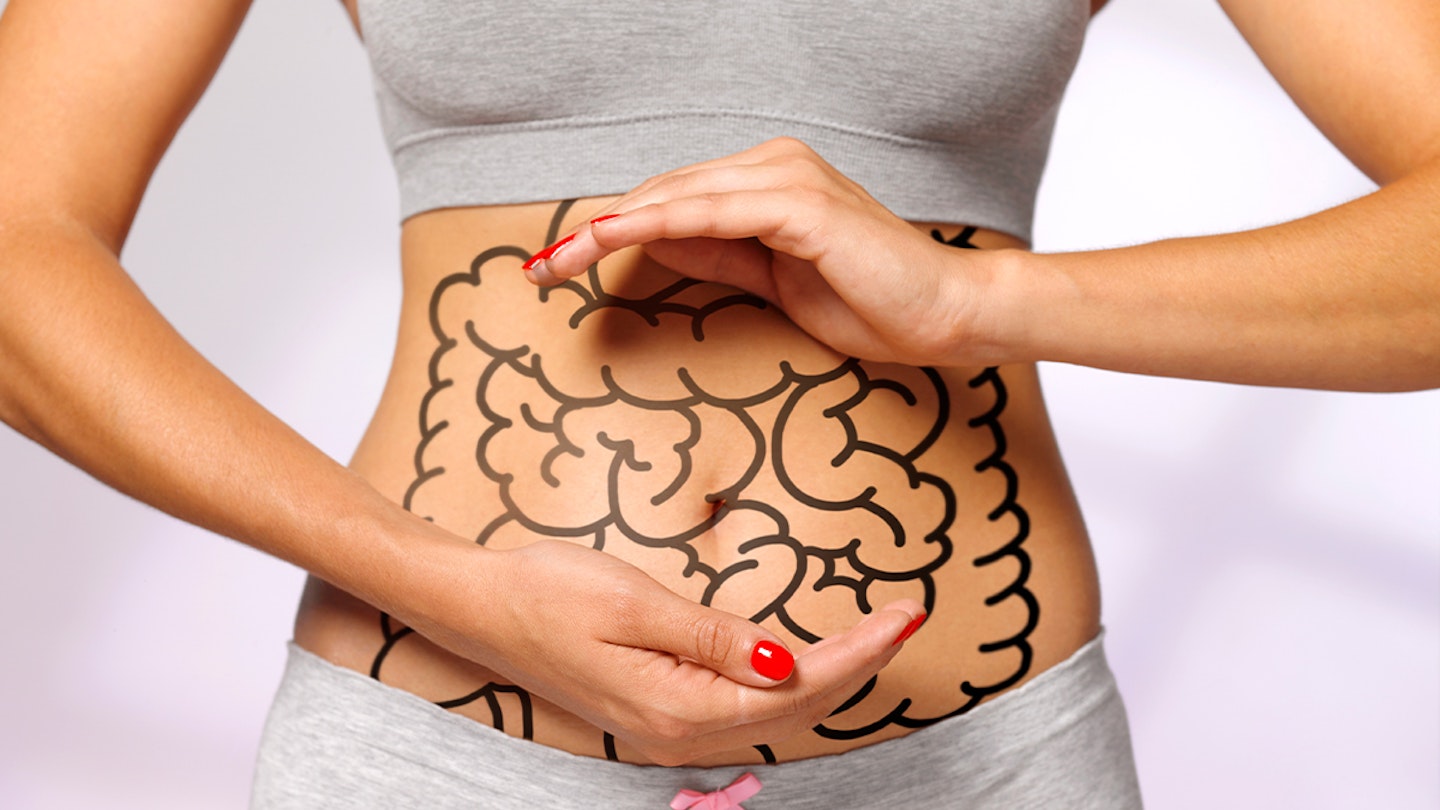Your gut is known as your second brain, if your gut is happy, it will help you feel happy and nourished as well. However, not everyone has impeccable gut health. Whether that is due to lifestyle, food intolerances, irritable bowel syndrome or other factors - many of us will benefit from improving our gut health.
From improving immunity, to keeping weight in check and lowering anxiety, there's even evidence that a healthy gut can prevent the onset of Parkinson's disease or reduce chronic pain. So, understanding more about how it's functioning, and taking steps to diversify your bacteria, is one of the best all-round steps to take for better mental and physical health.
There are lots of ways we can maintain good gut health such as eating a balanced diet, limiting artificial sweeteners or getting more sleep. We've included 10 simple and effective ways to improve your gut health and foods you can introduce to your diet to keep your microbiome healthy.
What is gut health?
Gut health refers to the balance of microorganisms that live in the digestive tract. Each person’s “gut microbiome” has about 300 to 500 different species of bacteria in their gut. There are trillions of bacteria, yeasts, and viruses that make up the term “gut microbiome” or “gut flora.”
While some microorganisms can be harmful to our health, many are extremely beneficial and even essential to our bodies. Looking after your gut health and maintaining the correct balance of these microorganisms plays an essential part in our physical and mental health.
“There are now clear links between the health of our gut and our brain function, mood, allergies, levels of inflammation, obesity, and bone health,” says Professor Glenn Gibson, Professor of Food Microbiology at University of Reading and Head of Food Microbial Sciences.
“The array of acute and chronic health problems that our gut bacteria influence is amazing and research is constantly finding new links between our gut health and our wider health. It’s a huge area of science but the most exciting thing about it is that unlike genetic disease we can actually do something to improve our microbiome and have a positive impact on our long-term health too.
“The balance of bacteria in your gut becomes less positive as you get older, due to a decrease in the ‘good’ bugs such as the important bifidobacteria,” says Professor Gibson. “We don’t know exactly why this change occurs but it’s thought to be related to dietary changes, such as less fibre, the build-up of the use of antibiotics and stress.” This natural decline can increase the risk of inflammation in your body – and chronic inflammation has been linked to faster ageing, an increased risk of heart disease, diabetes and memory problems. “Around 70 to 80 per cent of your immune system lies in your gut, so without the right balance of gut flora, we become much more susceptible to colds and viruses too.”
10 ways to improve your gut health
It can be quite difficult to tell whether or not you’ve got the balance right but there are a few tell-tale signs to watch out for. Any digestive problems such as diarrhoea or constipation, excessive bloating or wind, or an inflammatory bowel condition suggests that your gut flora isn’t balanced. Generally feeling stressed and run down and sleeping badly can also be a sign that things aren’t quite right.
Even if you don’t have any of these symptoms taking a few positive steps to improve your microbiome won’t do you any harm – after all the happier and more balanced your intestinal flora are, the happier and more balanced you’ll be too.
1 - Lower your stress levels
Stress undeniably does not do any good for your body. High levels of stress are hard on your whole body, including your gut. If you feel like the stress is getting to you, try some ways to lower your stress levels such as meditation, walking, massages, quality time with friends or family, essential oils, decreasing caffeine intake, yoga, or having a pet.
2 - Get enough sleep
Sleep is detrimental to our overall health and not getting enough or sufficient quality of sleep can have serious impacts on your gut health. Try to improve your sleep to ensure you are getting at least 7–8 hours of uninterrupted sleep each night.
3 - Eat slowly
By chewing your food thoroughly and eating food more slowly you can promote better digestion and absorption of nutrients. This may help you reduce digestive discomfort, trapped wind, bloating and maintain a healthy gut.
4 - Stay hydrated
You can never drink too much water. By drinking plenty of water it will help the mucosal lining of the intestines, which promotes better digestion. It will also help the balance of good bacteria in the gut. Keeping an insulated water bottle with you throughout the day will help to remind you to drink up.
5 - Take a prebiotic or probiotic
If you want to rebuild your gut health, then adding a prebiotic or probiotic supplement to your diet may be a great way to improve your gut and help combat any digestion issues. Prebiotics provide “food” that help the growth of beneficial bacteria in the gut. Probiotics are essentially live good bacteria.
People with bacterial overgrowths, such as SIBO, should not take probiotics. Not all probiotic supplements are high quality or will provide benefit, it is best to consult a doctor or do some research to ensure that the probiotic will be beneficial.

6 - Check for food intolerances
If you suffer from bloating, cramping, abdominal pain, rashes, nausea, fatigue, acid reflux, flatulence, constipation or very frequent visits to the bathroom then you may have symptoms that mean you have a food intolerance or several.
The best way to see whether you have a food intolerance is to eliminate a potential trigger food. Common foods such as gluten, dairy, eggs and soy could be the culprit to your digestive issues. Keep a journal to note how you are feeling whilst eliminating a food group. It is not recommended that you eliminate several food groups at once as that will not give you clear results.
If you do not find foods that trigger your digestive problems, then you can visit your GP or naturopath for a food intolerance test. Do not order a test online as they are not accurate.
It is important to note that food intolerance tests are not 100 per cent accurate and you should listen to how your body reacts as the first sign of evidence. If you have several food intolerances, it is not recommended to eliminate the foods all at once, remove one to three foods at a time so you will not be lacking in vital nutrients and vitamins.
If you can identify food or foods that are contributing to your symptoms, you will likely see a positive change in your digestive health by changing your eating habits.
7 - Change your diet
Reducing the amount of processed, high-sugar, and high-fat foods in your meals will help contribute to better gut health. Substitute, these types of food with plenty of plant-based foods and lean proteins such as turkey and chicken. A diet high in fibre has been shown to contribute enormously to a healthy gut microbiome.
8 - Eat foods rich in polyphenols
To promote good gut health, eat foods that are rich in polyphenols. They are plant compounds that have many health benefits, including reductions in blood pressure, inflammation, cholesterol levels and oxidative stress.
Polyphenols can’t always be digested by human cells so most are absorbed by the colon, where they can be digested by gut bacteria.
Good sources of polyphenols include cocoa and dark chocolate, red wine, grape skins, green tea, almonds, onions, blueberries and broccoli.
9 - Exercise
Exercising helps your gut, partly because it can ease stress. But research suggests activity may also have an effect on your gut bacteria - athletes have more of the beneficial gut bugs. But even moderate exercise can be digestion-friendly – one study found women who were active every day were less likely to be constipated. Try fitting in a daily walk.
10 - Stay regular
Keeping to a routine supports your microbiome, with research showing irregular snacking could throw your gut microbiome’s rhythms out – and this may also be linked to weight gain. So try to eat at similar times each day and leave several hours between each meal and snack to give your bacteria a break.
What microbes are and what they do for our bodies
Your microbiome is the collection of bacteria that lives in your gut, and more and more research is showing that these little bugs hold the key to a longer and healthier life for all of us – as long as we keep them happy and balanced.
Doctors used to think the microbiome was just involved with digestion but the latest science shows they have an impact on your broader health. Firstly, they play an important role in immunity – without good gut bugs, you’ll be more susceptible to colds and food poisoning. They could also help you keep your waistline in check because, according to French researchers, having lots of different healthy bacteria in your gut makes you more likely to be slim.

Topping up your microbiome could also reduce your risk of heart disease and type 2 diabetes.
How happy your gut is also affects how happy you are. Experts have known for some time that the brain and gut are connected – it’s why we talk about ‘gut feelings’, and is the reason we get butterflies when we’re nervous.
But the link goes far beyond anxiety making your stomach churn. Your gut is lined with more than 100 million neurons (cells that carry messages around your body), these pass on chemical messages produced by your gut bacteria all the way up to your brain. One study found that eating yogurt with live bacteria everyday could help to improve your brain function, boost your mood and lower anxiety. Some scientists even predict that ‘psychobiotics’ – medicines based on good bacteria – could be the next answer to depression.
So a good community of friendly gut bacteria can support your wellbeing – including your digestive system – in all sorts of ways.
What foods improve gut health?
Diet and gut health are very closely linked. Avoiding processed foods, high-fat foods, and foods high in refined sugars is extremely important to maintaining a healthy microbiome, as these foods destroy good bacteria and promote the growth of bad bacteria. There are also several foods you can eat that actively promote the growth of beneficial bacteria, these foods include:
1. High-fibre foods: foods such as legumes, beans, peas, oats, bananas, berries, asparagus, and leeks have shown a positive impact on gut health in numerous studies.
2. Garlic and onion: Some people who have food sensitives and digestive problems may steer away from garlic and onion, especially on a low FODMAP diet. However, these two foods have some anti-cancer and immune system-enhancing properties which are closely connected to some of the primary functions of the gut.
3. Fermented foods: The most well-known and proven gut healing foods are fermented foods such as the Korean pickle kimchi, sauerkraut, yoghurt, tempeh, miso, and kefir. They provide a great source of probiotics and have many benefits on the gut microbiome.
4. Collagen-boosting foods: As well as its beauty benefits, collagen can also work wonders on your gut. If you have ever inquired about gut health before you will have heard that bone broth works wonders. Collagen-rich foods such as bone broth and salmon are beneficial to overall health and gut health specifically.
